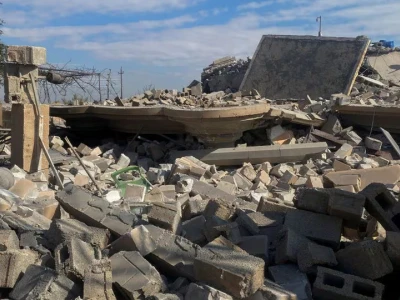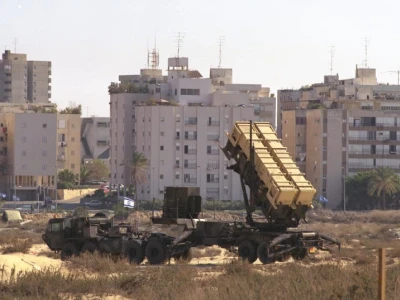
Pentagon chief vows 'all necessary actions' after US troop deaths in Jordan
The United States has already retaliated in Iraq, Syria and Yemen in response to previous attacks by Iran-backed groups.
WASHINGTON, Jan 29 (Reuters) - U.S. Defense Secretary Lloyd Austin on Monday vowed that the United States would take "all necessary actions" to defend its troops after a drone attack by Iran-backed militants that killed three U.S. service members and wounded dozens more.
The attack on Sunday was the first deadly strike against U.S. troops since the Israel-Hamas war erupted in October, and marks a major escalation in tensions that have engulfed the Middle East.
"Let me start with my outrage and sorrow (for) the deaths of three brave U.S. troops in Jordan and for the other troops who were wounded," Austin said at the Pentagon.
"The president and I will not tolerate attacks on U.S. forces and we will take all necessary actions to defend the U.S. and our troops," Austin added at the start of meeting with NATO Secretary General Jens Stoltenberg at the Pentagon.
White House national security spokesperson John Kirby told reporters that Biden was weighing his options for responding. "We are not seeking a war with Iran," he said.
The United States is trying to determine exactly why the nearly 350 troops at the base in Jordan, known as Tower 22, were unable to stop the drone.
Two officials said a U.S. drone was approaching the base around the same time the attack drone was incoming. One of the officials said the attack drone was also flying low, factors that may have contributed to it being missed by base defenses.
U.S. troops have been attacked over 150 times in Iraq, Syria and Jordan, as well as on warships in the Red Sea, where Houthi fighters in Yemen have been firing drones and missiles at them.
The attacks are piling political pressure on President Joe Biden to deal a blow directly against Iran, a step he has been reluctant to take out of fear of igniting a broader war.
Biden met with Austin and other members of his national security team in the White House Situation Room on Monday morning to discuss the latest developments regarding the attack, the White House said.
The president's options could range anywhere from targeting Iranian forces outside to even inside Iran, or opting for a more cautious retaliatory attack solely against the Iran-backed militants responsible, experts say.
"Iran continues to destabilize the region, this includes backing terrorists who attack our ships in the Red Sea," Stoltenberg said.
At least 34 personnel were injured in the Jordan attack, but that number is expected to change as more people seek care. Eight personnel were evacuated from Jordan for higher-level care, but are in stable condition.
CONFLICT SPREADING
The attack, and any potential U.S. response, is likely to fan fears of wider conflict in the Middle East, where war broke out in Gaza after Palestinian Islamist group Hamas' attack on Israel on Oct. 7, which killed 1,200 people.
Israel's subsequent assault on Gaza has killed over 26,000 Palestinians, according to the local health ministry.
The United States has already retaliated in Iraq, Syria and Yemen in response to previous attacks by Iran-backed groups.
"He's weighing the options before him," White House national security spokesman Kirby told reporters. "As he said yesterday, we will respond. We'll do that on our schedule and our time and we'll do it in the manner of the president's choosing as commander in chief.
"We'll also do it fully cognizant of the fact that these groups, backed by Tehran, have just taken the lives of American troops," Kirby said, adding that the United States was not seeking to escalate and not looking for a war with Iran.
British Prime Minister Rishi Sunak said on Monday he was concerned about tensions in the Middle East and urged Iran to de-escalate.
Iran's minister of intelligence said that regional armed groups aligned with Tehran respond to "American aggressors" at their own discretion.
Experts have cautioned that any strikes against Iranian forces inside Iran could force Tehran to respond forcefully, escalating the situation in a way that could drag the United States into a major Middle East war.
Related
Related

US believes drone that killed soldiers was Iranian-made

Three US troops killed, up to 34 injured in Jordan drone strike

U.S. launches strikes in Iraq, Syria, nearly 40 reported killed

